
30th October 2025 | Abu Dhabi | Beach Rotana Resort




30th October 2025 | Abu Dhabi | Beach Rotana Resort


Welcoming delegates to the Middle East edition of Future Digital Twin & AI, held on 30 October 2025 in Abu Dhabi, was both a privilege and a timely moment to reflect on the progress our industry continues to make. This gathering brought together leaders, innovators, and technical specialists who are collectively advancing how open collaboration, digital innovation, and intelligent technologies are reshaping the region’s energy landscape. The momentum behind this transformation is unmistakable, and the Middle East stands firmly at its forefront.
This year’s edition demonstrated just how rapidly the digital twin and AI conversation is maturing. These technologies are no longer viewed as optional enhancements. They have become central to how operators design, plan, and manage complex assets, driving greater resilience, improved performance, and more sustainable operations across the value chain. From facility planning to predictive maintenance, and from autonomous workflows to operational optimisation, digital twins infused with AI are now integral to strategic decision making.
Throughout the day, our discussions highlighted the depth of this evolution. We explored the development of data federations, the growing emphasis on interoperability, and the integration of common data models that enable digital twins to deliver real time intelligence. Conversations around scaling AI, shaping responsible agentic systems, and strengthening cybersecurity and governance frameworks reinforced how the region is not only adopting innovation but actively shaping its direction.
A defining feature of the Abu Dhabi edition was its focus on the convergence of digital twin technology with practical AI applications, particularly within operational excellence, asset integrity, and advanced process control. Panels examined the role of Retrieval Augmented Generation, robotics and IoT integration, distributed control systems, and the expanding influence of AI in safety critical environments. Insights from leaders across ADNOC, Saudi Aramco, Shell, Microsoft, OMV, Kent, Worley, Wood, NYU Abu Dhabi, and others made clear the scale of ambition and capability driving this transformation.
What continues to set Future Digital Twin & AI apart is the breadth of expertise it convenes. Senior decision makers, technical authorities, innovators, and academics came together with a shared purpose: to advance a digitally empowered and sustainable energy sector. The spirit of open collaboration and innovation ran through every session, reflecting a collective commitment to building the next generation of resilient, data led ecosystems.
I would like to extend my sincere gratitude to our advisory board, partners, sponsors, and speakers for shaping the direction of this event. Most importantly, I thank our delegates. Your engagement, curiosity, and willingness to explore new ideas are what make this platform so valuable.
As we look ahead, one message is clear. The future of our industry will be defined by the partnership between human expertise and advanced technologies. Future Digital Twin & AI Middle East is more than a conference. It is a movement driving purposeful, intelligent, and sustainable transformation. We are proud to continue this journey with you.
Adam Soroka CEO, Cavendish Group International
The Future Digital Twin & AI 2025 Middle East conference, held in Abu Dhabi by Cavendish Group International, provided a forum for vibrant discussion and learning in a region fast becoming a hub for expertise on the deployment of AI in the energy industry.
The fast-growing annual event played host to some 291 delegates from 168 organisations at Abu Dhabi’s Beach Rotana Resort conference centre, where they were able to listen to high-level expert speakers, exchange ideas and take advantage of the extensive networking opportunities on offer.
The conference attracted thought leaders and innovators in digital twin and AI development from across the global energy sector, including speakers from ADNOC, Aramco, Kent, Kongsberg Digital, NYU Abu Dhabi, Shell, V2T, VEERUM, Wood, Worley and many others.
Digital twins are now everywhere in the energy industry, allowing users to create digital replicas of physical assets or systems that can be used to foresee and avoid problems, improve performance, and traverse the energy transition.
Delegates heard how AI-driven applications were now making digital twins more powerful by enabling them to produce increasingly accurate output and making them easier and faster to interrogate to get that valuable information out.
Other hot topics in Abu Dhabi included speeding up implementation of AI-based projects to generate returns on big investments faster, the need for interoperability between diverse types of digital twins and AI-driven processes, data standardisation, the crucial role of cybersecurity in keeping data safe, and ensuring that AI implementation is done in a way that bet serves the needs of users.
Adam Soroka, Chief Executive Officer of Cavendish International, said the event highlighted the lead being taken by Middle East companies and organisations in innovative AI deployment, noting the huge investments flowing into the region from global technology players. He also welcomed a spirit of greater openness in discussing the evolution of AI in the energy sector.
“I found this year’s conference very refreshing, because people were more prepared to discuss the pain points that they were finding with AI implementation, as well as the success stories – the more that happens, the better it will be for the industry,” he said.
Wassim Ghadban, Global SVP, AI & Digital Engineering at Kent, and Chair of the conference’s Advisory Board, underlined the need for collaboration.
“The world will need more energy to run AI and AI will also help make our industry better. We don’t have all the answers yet, but open collaboration on the successes and failures at forums like this will help to take us on a great journey of innovation,” he said.

Here’s what some of the experts said at Future Digital Twin and AI Middle East 2025:
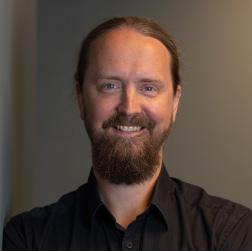
ØYSTEIN HOLE, Chief Product Officer, Kongsberg Digital
“Agentic AI really shines by providing industrial intelligence on which we can base our own decisions”
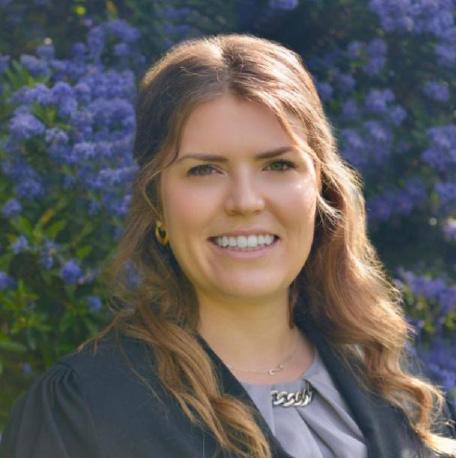
ERIKA PARN, Research Assistant Professor at NYU Abu Dhabi,
“AI is giving digital twins a voice and a language… transforming them into tools for action.”
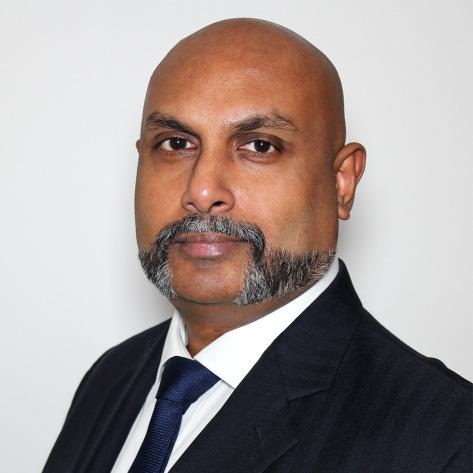
NADUN MUTHUKUMARANA, CEO, V2T
“AI is perhaps the only technology in history where you can realistically expect better than tenfold returns.”
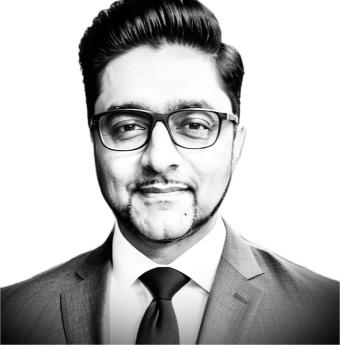
ARVIN SINGH, Partner, Head of Digital Advisory, ME & SE Asia, Wood
“We are already seeing the benefits of AI, however the return on investment is going to be far greater in five-years’ time.”

CLAYTON LUDIK, Vice President Digital, Worley Consulting “Training and upskilling are critically important –they tie in very closely to strong change leadership”
Attendees
Organisations

You don’t need to invest £100m to make $100m return on investment, Nadun Muthukumarana, CEO, of AI solutions provider V2T told the event.
“AI is perhaps the only technology in history where you can realistically expect better than tenfold returns. Recent data shows AI leaders are achieving 10.3-times ROI per dollar invested whilst average implementations see just 3.7-times. That gap? It’s widening every quarter,” he said.
Arvin Singh, Partner, Head of Digital Advisory, ME & SE Asia, Wood agreed.
“We are already seeing the benefits of AI, however the return on investment is going to be far greater in five-years’ time, because AI is going to be so readily available at a price point where we can roll it out almost without thinking about it,” he said.
AI applications are turbocharged the development of digital twins, as Erika Parn, Research Assistant Professor at NYU Abu Dhabi, told delegates.
“Think of digital twins as an analogy of the human brain-body connection. As a Digital Twin matures over time, just like a human, it learns to speak and expands its vocabulary. AI has truly unlocked this potential. Before, we viewed them as static dashboards; now, AI is giving digital twins a voice and a language with which to communicate with their operators, transforming them into tools for action,” she said.
Speakers said production optimisation was the area where AI and digital twins were adding most value in the energy industry, but that their utility is spreading fast.
“Using predictive analytics powered by AI to improve asset reliability and reduce downtime in operations is leading to a quantum shift in how we strategise, plan and execute maintenance,” Wood’s Arvin Singh said.
AI is proving to be an invaluable tool, but it needs to be introduced cautiously to avoid investment being wasted, some speakers said.
“We need to be disciplined in assessing how much value digital twins are going to provide for our businesses – it’s easier to scale up than to scale down,” one manager from a leading Middle Eastern energy producer told the conference.
Others highlighted key elements for successful change, such as a robust database foundation, worldwide trust and governance – and making sure the workforce has the required skills to implement the changes associated with AI.
Øystein Hole, Chief Product Officer at digital twin developer Kongsberg Digital, told the conference, the goal of introducing AI is to provide prescriptive options for critical decisions, ensuring that humans remain in control while benefiting from AI insights.
“Where agentic AI can really shine is in providing industrial intelligence on which we can base our own decisions. It can take the data and analytics representing operational scenarios to compare them and identify which scenarios provide the optimal outcomes, and which ones need improvement. That’s the step that gets us to the prescriptive future we envision for complex engineering workflows,” he said.
But we are not at the stage where agentic AI can be fully autonomous. Experts said humans still needed to be kept in the loop to verify output and train agents to ensure responses are correct and grounded in the relevant information to reduce hallucinations and errors.
Extending asset life is now a hot topic for the industry, as it seeks to maximise profitability through the energy transition.
AI-driven technology can help extend asset life, particularly enhancing the maintenance aspect, driving equipment and assets as far as they can possibly go,” Clayton Ludik, Vice President Digital, Worley Consulting said.
The industry is switching from vendor-specific to interoperable solutions, speakers said.
“Interoperability is critical. There are around 250 classifications of digital twin today and many inputs are required to feed a digital twin to develop AI-leveraged models. Those components need to be speaking to each other and need to be open source and open architecture,” one expert from a digital twin solutions company told the conference.
Don’t make a lack of historical data a barrier to launching your AI-driven digital twin project.
“If you’ve got historical data, then use it, but don’t let it stop you getting your $100m project off the ground. You can still use ‘effervescent’ data — your operational data,” Nadun Muthukumarana of V2T said.
They say it is not the camera, it is the photographer that is crucial for a good photo. In the same way, you need smart people to drive AI – but it may take time to train engineers with the right skills and mindset.
Worley Consulting’s Ludik told delegates: “Training and upskilling are critically important. They tie in very closely to strong change leadership, making sure that AI adoption runs from top to bottom and bottom to top of an organisation. Users need to be involved in the design process – it is critical that their voices on the processes and the pain points they are trying to alleviate by using AI are heard. That buy-in is central to success.”
A facility manager from a leading global energy producer added: “You need to understand the needs of people that AI can address – investment will be wasted if you don’t bring people with you on the journey”.
The use of AI in the energy industry will require new regulations governing its use to be put in place. Wood’s Arvin Singh provided an example:
“AI could mean risk exposures can be assessed in real time, effectively moving away from the need for a facility to benchmark against an industry standard. That means regulatory and standard bodies will need to work with new AI regulations that have yet to be put in place,” he said.
The days when developers were given several months or even years to trial AI are over.
“Today, most organizations are asking for rapid time to value. We don’t do projects that last longer than 12 weeks anymore. So, what if every digital twin project you do can no longer take any longer than that. Could you do it?” Nadun Muthukumarana of V2T asked delegates.
“AI is not just to enhance the traditional tools, it is here to help humanity achieve much more, especially through autonomous AI agents – and we need to be ready,” Jean-Paul Vencatachellum, Director – AI Solution Engineering, at G42-owned Inception AI told the conference.
“To get a sense of the speed at which this is evolving, the Covid virus took 13 months to infect 100 million people. ChatGPT took just two months to reach the same number of people,” he said.
“As the world evolves so rapidly with the AI revolution impacting many sectors, the construction industry still lags behind compared to manufacturing, retail, and entertainment. I expect the construction sector to increasingly utilise AI technology by 2023.”
Saleh Wadei Director, Maintenance Manufacturer Shops, Yanbu Aramco Sinopec Refining Company YASREF (Aramco)
“The conference was great! The participants were exactly the people you want to meet and talk with when it comes to digital twin and AI.”
Berdiyar Saurbayev Head of Operational Transformation, Energy, EPAM
“Future Digital Twin & AI Middle East was highly informative and covered the latest and most advanced topics. The sessions addressed real industry challenges, with credible speakers and case-driven workshops that delivered practical takeaways. There was great cross-industry and technology participation, along with excellent networking opportunities. A fantastic, well-orchestrated conference.”
Vinay Palankar Lead, Procurement & Supply Chain Excellence, Borouge

“It was a pleasure to be part of the panel on Remote Operations – Digital Twin as a Central System of the Industrial Metaverse infused with AI. The event was exceptionally well organised, with a thoughtfully designed programme that tackled some of the most relevant and forwardlooking themes in our industry. The quality of participants—from strategic leaders to technical experts—created an environment of rich dialogue and meaningful exchange. Kudos to the organisers for curating such a highcalibre event and bringing together a diverse and knowledgeable group.”
Manish Kumar OT Network & Cybersecurity Manager, Kent
“The Future Digital Twin event brings together leading experts from diverse fields to explore the latest trends in digital twin and AI. It’s a dynamic platform that fosters insightful discussion, collaboration, and active participation among industry innovators.”
Maryvi Yabet Santiago Senior Engineer, Reservoir Management, ADNOC
“On behalf of the Advisory Board, I would like to sincerely thank Adam and his team for organising Future Digital Twin & AI Middle East 2025 with such professionalism and grace. A major success of the event was bringing industry thought leadership together in our region to discuss the latest topics on digital twin and its vital role in enabling autonomous operations, integrated value chains, and performance management. I am extremely pleased to see greater focus on controlling GenAI while embedding LLMs into digital twins. The event truly promoted open collaboration and innovation amid the everevolving digital landscape.”
Abdullah Al Halafi Network and Systems Specialist, Digital Twin, Saudi Aramco
“The conference brought together industry leaders to showcase how digital twins are driving efficiency, sustainability, and innovation across the oil and gas value chain.”
Richard Mohan Senior Specialist, Advanced Reservoir Solutions, ADNOC
Michael Grieves, Executive Director & Chief Scientist, Digital Twin Institute
Khaled Al Blooshi, VP, Digital Projects & Innovation, ADNOC
Abdullah Al Halafi, Network and Systems Specialist, Digital Twin, Saudi Aramco
Wassim Ghadban, Global SVP, AI & Digital Engineering at Kent
Shane McArdle, CEO, Kongsberg Digital
Dr Soliman Almadi, Principal Scientist, Process & Control Department, Saudi Aramco
Fayez Kharbat, Digital Transformation Senior Consultant, Saudi Aramco
Dr Wael El Ghandour, Lead Scheduling Engineer, Saudi Aramco
Dina Alamer, Lead IT Systems Analyst, Saudi Aramco
Abdulaziz Alshehri, Senior Project Engineer, Saudi Aramco
Dhafer Algarni, Project Management & Industrial Services Division Manager, Saudi Aramco
Saud Alrasheed, IT Applications Specialist, Saudi Aramco
ElFadl Zaki Ibrahim, Upstream AI & Digital Transformation Program Lead, ADNOC
Professor Merouane Debbah, Senior Scientific AI Advisor, Technology Innovation Institute
Dr Wael Ziadat, VP , SPE Chairman
Saleh Al-Wadei, Senior Project Manager, Yanbu Aramco Sinopec Refining Company (YASREF)
Majed AlFulaiti, VP, Panorama Digital Command Center, ADNOC

Adolfo Perez, VP, Strategy & Business Development, ADNOC
Ali Abdulla Hassan Salman, Chief of Information Technology, Ministry of Oil & Environment Bharain
Arvin Singh, Partner, Head of Digital Advisory, ME & SE Asia, Wood
Berdivar Saurbayev, Head of Operational Transformation, Energy, EPAM
Clayton Ludik, VP, EMEA & APAC, Worley
Dorzhi Badmaev, Senior Specialist Cognitive Reservoir Management, ADNOC
Dr Chris Cooper, Executive Advisor, Group Digital & Cyber Security, Former CEO AIQ
Dr Wael Ziadat, VP , Corva AI
Dr. Ebrahim Al Alkeem Al Zaabi, Ph.D., Board Member of Cybersecurity Academy, Government of Abu Dhabi
Eiman Alhashmi, Digital Engineer, Kent
Erika Parn, Research Assistant Professor, PhD, NYU Abu Dhabi
Fernando Landaeta Rivas, Drilling Performance Senior Engineer, ADNOC
Izwan Adnan MBA, Senior Reservoir Engineer, Chairman SPE Northern Emirates Section Dragon Oil
John Cumming, Director Centre of Excellence, Digital Twin & Simulation, Worley
Kari Manner, Director, Business Development, Process Industry, Cadmatic
Khaled Darwish, Lead Engineer, Smart Grid Automation, TAQA
Kushal Desai, Digitalisation & Innovation Manager, Pearl GTL Plant, Shell
Manish Thakur, OT Network & Cybersecurity Manager, Kent
Maryvi Yabet Santiago, Senior Engineer, Reservoir Management, ADNOC
Meaghan Snethlage, VP of Business Development, VEERUM
Mikael Berthod, General Manager, Refining & Marketing, MEA, OMV
Mike Roshchin, Ph.D., Senior Vice President, Inception
Mithula Jeyabalasingam, Business Manager, Middle East, Data & Digital Integration, Wood
Mostafa Mobasher, Assistant Professor of Civil & Urban Engineering, NYU Abu Dhabi
Nadun Muthukumarana, CEO, V2T
Partha Pratim Dev, Venture Manager, Offshore Engineering Structure, Rosenex
Richard Mohan, Senior Specialist, Advanced Reservoir Solutions, ADNOC
Saleh Al-Wadei, Director, Maintenance Manufacturer Shops, Yanbu Aramco Sinopec Refining Company YASREF (Aramco)
Sara Al Wehaibi, Digital Factoy Specialist, Operational Excellence, ADNOC
Satyadileep Dara, Advisor, AI & Technology Operations, ADNOC
Shane McArdle, CEO, Kongsberg Digital
Simon Williams, CAIO, Atelic AI
Utsav Kishore, Senior Project Manager, NMDC Energy
Vinay Palankar, Lead, Procurement & Supply Chain Excellence, Borouge
Wassim Ghadban, Global SVP, AI & Digital Engineering at Kent
Yara Alatrach, Energy Industry Director, AI, Microsoft
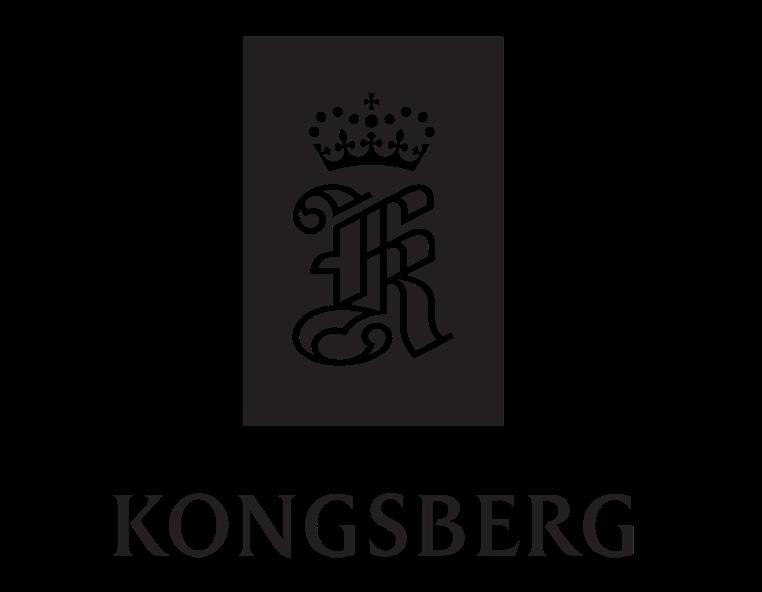
Sponsor

Sponsor


Sponsors


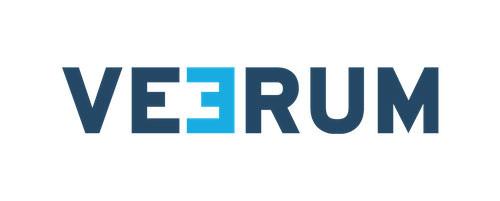



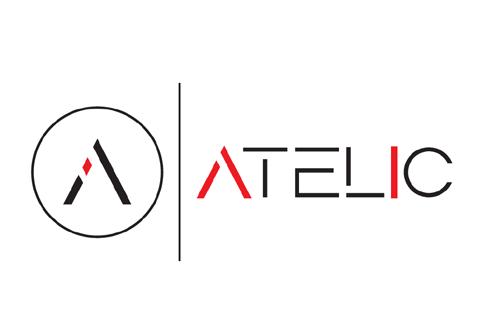
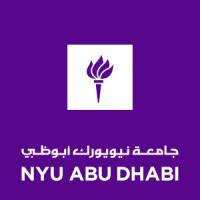


Ab
Abu
Abyss
Adnoc
Adnoc
Adnoc
Adnoc
Adnoc
Adnoc
Adnoc
Adnoc
Adnoc
Adnoc
Adnoc
Target Construction
Company
Target Engineering
Construction
Technip Energies
TGT Diagnostics
TGT Oilfield Services
Total Vision Oil & Gas Fields
Services & Consultancy
TotalEnergies
U
Unity Technologies
University Of Moratuwa, Sri Lanka
University Of Wollongong, Dubai
Upstream DirectorateAdnoc
Utopiax
V
Vector 2 Transform (V2T.Io) Veerum
Velimor
W Weatherford Wollschlaeger Technical Systems
Wood Plc Worley
Y Yellow Door Energy
